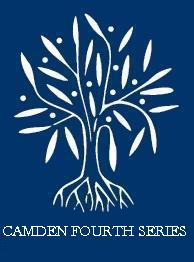No CrossRef data available.
Article contents
[fo. 26] The Thirde Yeare of King Henrie the Fourth
Published online by Cambridge University Press: 21 December 2009
Extract
This yeare in the moneth of March a blazing starre appeared, first spreading the flames round, then stretching them towardes the north, which astrologers (whose arte & errour are nere neighbours) conjecture ether to cause or to portend some tragicall event.
About Whitsonntide certaine persons, whose hopes depended upon noe honest meanes, did newlie confederate against the king, with whose majesty theire malice continuallie contended in increase. And to drawe some authoritie to theire attemptes, they gave forth that King Richard was living and desired the aide of his loving people; that by extreame violence of the time hee was constrained to keepe unknowne, but upon some declaration of his frendes hee would appeare, & royallie rewarde those whoe should bee readie to adventure for him. This was whisoered uncertainely at the first, as in dangerous newes it is usuall; afterwardes it was confidently committed to the credulous eares ether of the weake sorte or of the turbulent & busie minded, the one being easie, the other being earnest for innovations. Among these, the reporte running variously concerning King Richards death, it was the more easily beleeved that hee might bee alive. The first brunt of this bruite much shaked the common people, wavering by nature & slowe to settle in a new subjection, but the king composed [fo. 26v] himselfe to a carelesse securitie, changing nether countenance nor place, ether through haughtinesse of courage, or because hee knew the truth lighter then the reporte. And indeed, upon apprehension of a certaine preist in Ware who was the principall both authour & actor of this devise, all the terrour vanished to a toye.
- Type
- Research Article
- Information
- Camden Fourth Series , Volume 42: The First and Second Parts of John Hayward's The Life and Raigne of King Henrie IIII , July 1991 , pp. 205 - 227
- Copyright
- Copyright © Royal Historical Society 1991
References
1 Hayward's choice of this well-documented comet to introduce a segment marked by thematic imagery of violent tempests, diabolical apparitions and the like, is another illustration of his preoccupation with dramatic narrative.
2 14 May 1402.
3 MS ‘enrouled the names the names of many’
4 May 1402.
5 MS: ‘with great great rage …’
6 MS: ‘men have have had’
7 7 Sept. 1402.
8 to tast(e) = to test, to try (OED).
9 14 Sept. 1402.
10 MS: ‘the the valiant man’
11 MS: ‘with different courage, ranged themselves.’
12 ‘Dragme’ = ‘dram.’
13 The OED identifies this as Spenser's quasi-Italian spelling of ‘joust’ (‘just’). Hayward uses the terra here and elsewhere as a substantive, meaning a ‘right’ or ‘just reward.’
14 A neighbourhood of ancient Saxon and Briton battlegrounds from the 6th century.
15 I.e., 30 Sept. 1402.
16 ‘Having an empty or unsubstantial air of importance’ (OED).
17 MS: ‘the the statutes’
18 Marginalia: ‘Subsidy.’ This invented speech restates Hayward's support of the monarch's right to levy taxes for the common good, set forth earlier in his ‘Epistle Apologeticall’ written for the suppressed second edition of The First Part.
19 MS marginal note: ‘27 Henry 8.’


